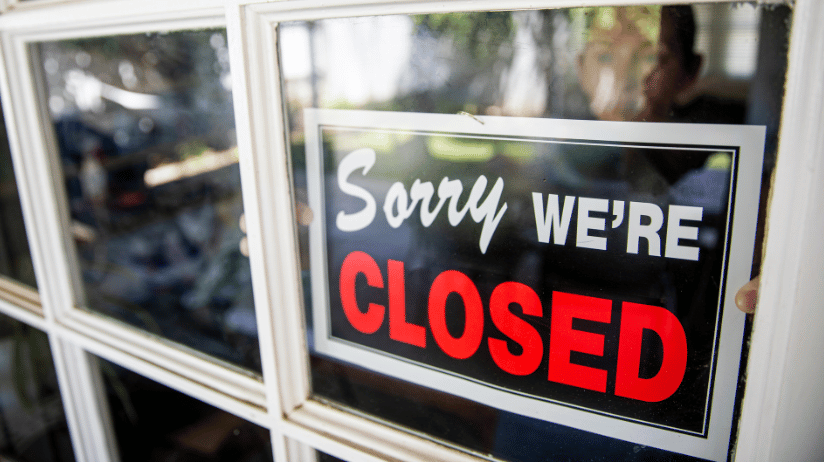There are over 33.2 million small businesses in the United states. Unfortunately, many of these businesses won't make it. It's astonishing to realize that 33% of businesses fail in the first 2 years and 50% fail within 5 years. Only a third of new businesses get to celebrate a 10-year anniversary.
But why? In a land of opportunity, why is there so much business failure? Dive in to the most common reasons why businesses fail and discover how franchising helps overcome those pitfalls.
1. Financial Management
Every business has to make money. But, many small businesses struggle due to poor cash flow management, inadequate budgeting, and overspending. If you aren't used to tracking all expenses and managing debts carefully, the financial side of a business can be challenging. To prevent financial mishaps, entrepreneurs should create seek professional advice when necessary and consistently monitoring and adjusting their financial practices.
In a franchise system, there are many franchisees and members of the franchisor team that you can lean on for support and advice. Your franchisor can also help establish financial benchmarks to help measure and monitor the health of your finances.
2. Marketing & Branding
Marketing and branding are so important when starting a business. Even the best products and services will fail without proper differentiation and marketing efforts. But small business owners tend to underestimate the importance of a strong brand identity and compelling marketing strategy.
Too many businesses fail to leverage social media, content marketing, and other digital tools to their advantage. Entrepreneurs should focus on crafting a unique brand story and engaging with customers on various platforms. Highlight the problems that your produce or service will solve, and and continuously adapt your marketing approach to stay relevant.
If you join a franchise system, you can benefit from built-in brand loyalty and brand recognition. The franchisor has established a name, reputation, and brand identity that people know and trust. And they have marketing materials and messaging to help you stand out in your local market. So, you don't have to do this heavy leg work!
RELATED CONTENT: Marketing a Franchise
3. Too Much Too Soon
Another pitfall of business ownership is expanding too soon. If you find success with your first location, it can be easy to look to expansion. However, expansion comes with a unique set of challenges that can put a lot of strain on the business.
Some entrepreneurs spread themselves too thin between multiple markets or when adding a new product line. So, be sure to carefully and methodically plan your expansion to avoid the financial drain and added stress.
Many franchisors have expansion agreements that allow existing franchisees to acquire additional territories to open new units. There may be a discount on the initial franchise fee for the new territory, making expansion more affordable. Plus, the system will have guidelines on how to successfully expand, and you will have role model franchisees who have done it.
4. Leadership
The leadership and management skills of an entrepreneur play a significant role in the success or failure of a small business. Poor communication, lack of delegation, and an inability to build a motivated and cohesive team can lead to internal turmoil.
A business owner may have the skills to create and sell a great product, but they could lack the skills to manage a team effectively. Without a strong management team in place to help the company grow and manage employees, the business will ultimately fail. Successful entrepreneurs invest in their leadership abilities, surround themselves with capable team members, and foster a positive and collaborative work environment.
Business ownership in a franchise system comes with support and lessons learned from other franchisees. Your network of fellow franchisees can help you develop leadership skills and anticipate challenges that may arise as you grow. Additionally, your franchisor may be able to provide support and guidance on how to best manage your team.
RELATED CONTENT: 9 Tips for Becoming a Better Leader
5. Business Plan
Some businesses are doomed from the start with a poor business plan. If an entrepreneur doesn't do their market research, they may come up with a concept that isn't viable or dive into a market that has high barriers to entry. But lack of strategic research and planning can make all the difference in the success or failure of business ideas.
Business owners should develop solid and realistic business plans based on sound market research. The plan should include feasible business goals along with strategies for how the business will reach those goals.
The best part about working with a franchise system is that the business model is already established for you. The franchisor already spent significant time developing the business model, and it has proven successful. As a franchise owner, you can plug into the system and have confidence in the success of your peers.
You may still want to develop a business plan specific to your office and growth. But the overall framework and market research for your business concept will be clearly defined already.
6. Adaptability
In today's rapidly evolving business landscape, adaptability is key to survival. Small businesses that fail often struggle to adapt to changing market conditions, consumer preferences, and technological advancements. The fear of embracing new strategies or technologies can hinder growth and lead to obsolescence.
Successful entrepreneurs remain open to innovation, continuously learn about emerging trends, and are willing to pivot their business models when necessary.
In a franchise system, the franchisor can help guide your business through turbulent times and provide specific guidance to help you adapt as needed. Often, the franchisor has tested tweaks and other changes before rolling them out systemwide, ensuring a smoother transition and more successful outcome.
7. Location
Another reason that many businesses fail is location. Physical location is particularly important for local businesses that rely on foot traffic. But it can also be important for home-based service businesses because you may still need to interview employees at an office.
When choosing your location, consider traffic, parking, and accessibility. Think about the location of your competitors, how much rent and utilities will cost, and how to make your space appealing. Ultimately, make sure that there is a customer base in the area that is sufficient enough to support your business.
At Caring Senior Service, we deeply research new markets to ensure that they a high senior population that is growing. With our franchisees, we identify the best possible territory for them. We also provide guidance on finding a suitable office space.
The Bottom Line
Opening a new business is no joke! It requires a lot of hard work and thorough planning. However, it can be extremely rewarding — personally and financially. If you're looking into business ownership, consider how a franchise like Caring Senior Service can help you achieve your goals more efficiently.
To learn more about opening a home care franchise business, reach out to our team.


